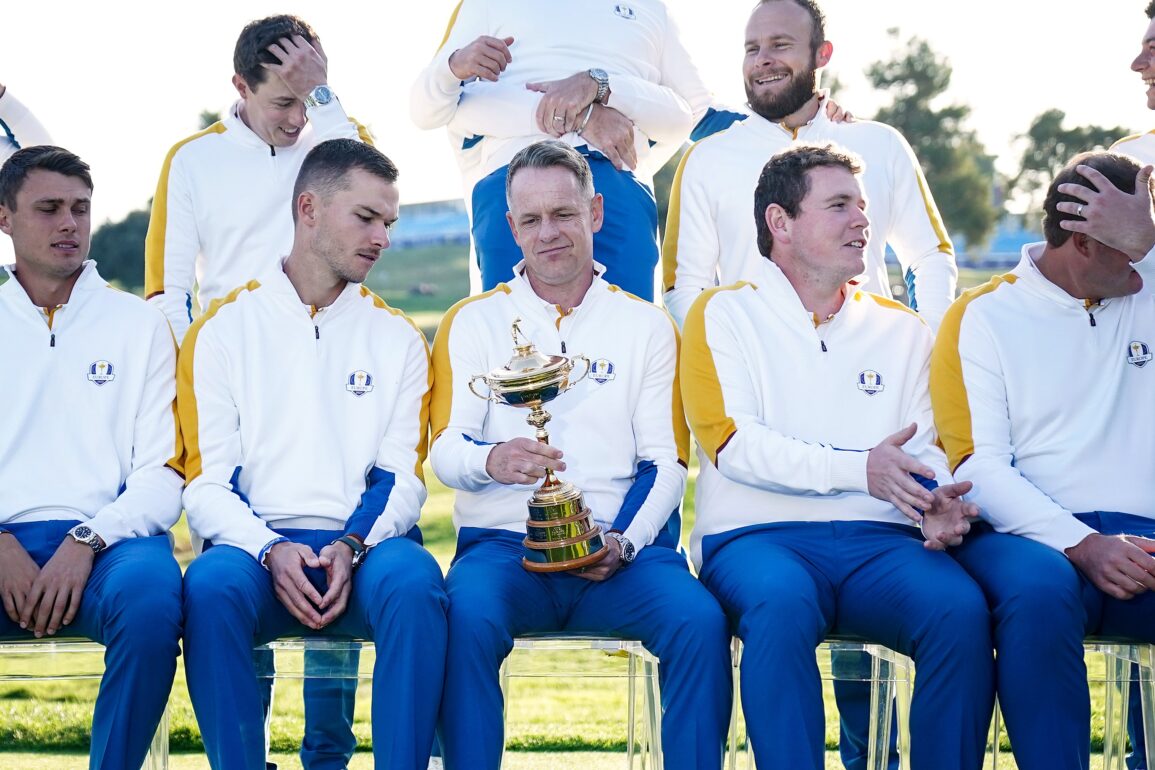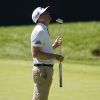The contradiction of the Ryder Cup is that it can be won both fervently and with a lack of strive. Despite the fact that comebacks make people passionate, statistics are facts.
The event is mostly won from the onset.
Luke Donald, the captain of Europe, and his teammates accepted this. Prior to Europe winning the Ryder Cup again, Tommy Fleetwood defeated Rickie Fowler in the Singles match to give Europe the necessary 14.5 points. Before Europe took a 10.5-5.5 lead into Sunday, Fleetwood had a two-point lead with two games remaining, and they were turning the race into a sprint. It ended 3 to 1 in favor of Fleetwood.
“We have just discussed getting off to quick beginnings this week. Luke has pounded it into us to play three-hole matches during practice—three holes, go again, three holes, go again,” said Rory McIlroy, who defeated Sam Burns, 3 and 1, and had in total a 4-1-0 Ryder Cup record.
The message is crystal clear: seize the moment and act quickly because it is exactly what needs to be done. Additionally, when the host team scores first, the audience erupts into a raucous celebration.
“We were aware that we held it. Throughout the entire week, we adhered to our original strategy. Obtain quick starts. Team up to play. Employ the crowd. Utilize their vigor.” Donald said.
Tyrrell Hatton, Fitzpatrick, and Jon Rahm all made birdies on the opening hole to establish a one-up Sunday lead. McIlroy shot a par to advance. Dreamy ideas of a U.S. comeback now seemed absurd with blue on the board in four of the first six matches and white (tied) in the other two.
On Sunday, Europe finished with four birdies and five victories on No. 1 while the United States had two and two.

A few teams had achieved this feat in Singles (notably the American Team in 1999 and the Europeans in 2012), but it was improbable. Donald understood that building upon all those strong starts was the best way to fend off a comeback. In order to do this, he chose to start Rahm, FedExCup champion Viktor Hovland, Ryder Cup expert Justin Rose, and 24-time PGA TOUR victor McIlroy.
Due to Patrick Cantlay’s three final birdies, which changed the outcome of his and Wyndham Clark’s match against McIlroy and Fitzpatrick on Saturday night, the U.S. Team gained potential.
But in order to keep it, they would have to go through a lot of ordeal and score points against three of the top four golfers in the Official World Golf Ranking in addition to Rose, who wore a picture of calm.
“They’re going to start the game off with some blue on the scoreboard,” Donald stated.
And they did it with the same sense of urgency, winning three and tying another in the opening six games.
In the first completed match of the day, Hovland defeated Collin Morikawa by scores of 4 and 3 to improve to 3-1-1 overall. With a score of 11.5 to 5.5, Europe was just three points away from regaining the Cup.
Rahm tied Scottie Scheffler with a birdie on hole 18. The result was 12–6. Despite eliminating Roses 2 and 1, the clinical Cantlay only postponed the inevitable. By the time McIlroy defeated Burns on a score of 17, the two hugged afterward, and Hatton defeated Brian Harman in straight sets, Europe had a 14-7 advantage.
It was 14-10 when Brooks Koepka defeated Ludvig Aberg and Xander Schauffele defeated Nicolai Hjgaard by scores of 3 and 2. At least the Americans weren’t surrendering easily.
It was put to an end by Fleetwood’s conceded birdie on hole 16 over Fowler, who had driven it into the water.
The host team’s excessively quick beginnings had exposed the reality that many Americans were in difficulty even before a single shot was fired. Scheffler, who defeated Rahm in singles at Whistling Straits in 2021, struggled the first two days, losing 9-and-7 against Aberg and Hovland in foursomes while teaming up with Koepka.
Rahm won the fourth and fifth holes on Sunday because Scheffler, who was ranked 151st in Strokes Gained: Putting, struggled on the greens once more. From there, Scheffler recorded six birdies, but Europe gained another half-point when he failed to get up and down for a seventh on hole 18.
While Europe perfected early leads, the United States found it difficult to build any kind of lead. Until the second session of Friday, when Justin Thomas and Jordan Spieth overtook Hovland and Hatton with a 1-up advantage after Justin birdied the sixth hole, there was no read on the board. Six and a half hours into the contest, you could already see the direction the Cup was going.
Europe, which was frequently referred to as a squad in transition, had some issues, but by winning the morning and the day, those questions have been resolved.
Aberg, 23, and Hovland, 26, are two Nordic naturals with young legs and rhythmic ball-striking. Mark them down for at least the Ryder Cups in 25 , 27 and 29.
Hjgaard, the 22-year-old player on either team who is the youngest, was so moved by his first Ryder Cup experience that he birdied the first hole twice, once in a foursomes match with partner Rahm and once in a singles match against Schauffele.
Another rookie from Europe, Robert MacIntyre, also made two birdies on the first hole in four-ball, going 1-0-1 both times with companion Rose.
Fleetwood added two more victories this week with teammate McIlroy to his 4-4-0 Ryder Cup record with Francesco Molinari from 2018. It was finished when Fleetwood struck Fowler with a blow. All that was needed for Spieth to tie Shane Lowry was a birdie on the last hole.
The last session ended in a 6-6 tie between the two teams. As usual, the winner enjoyed an advantage.



